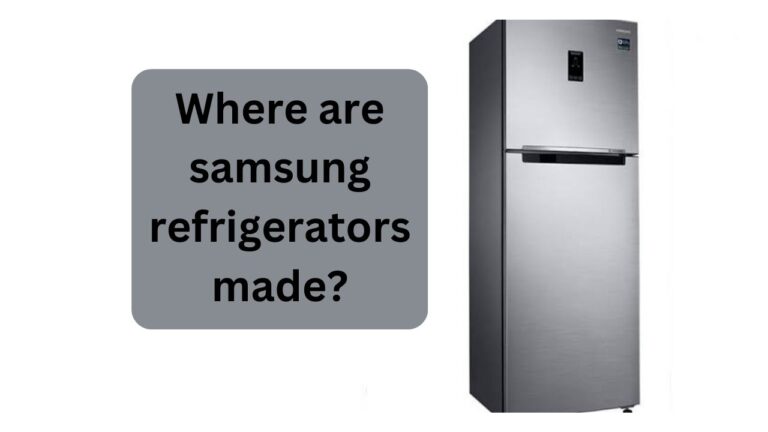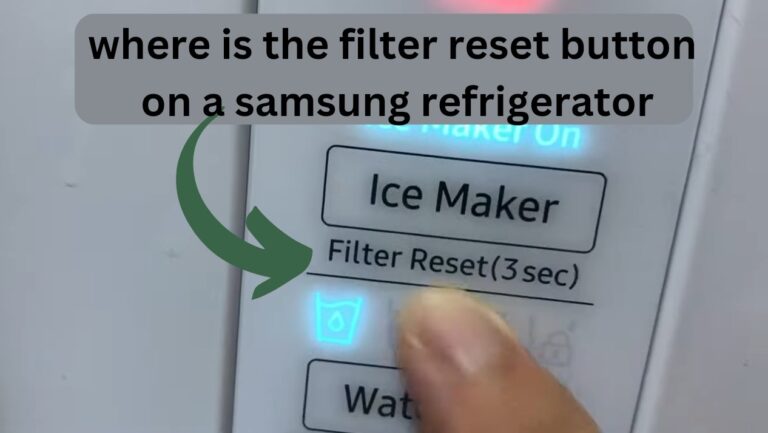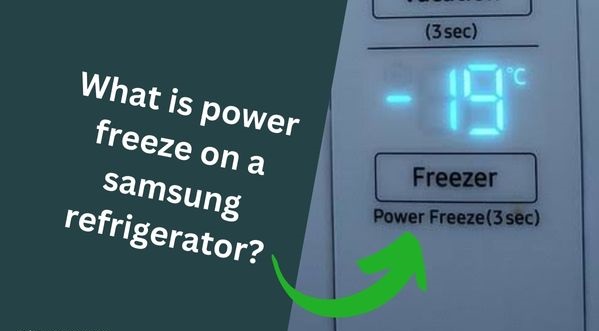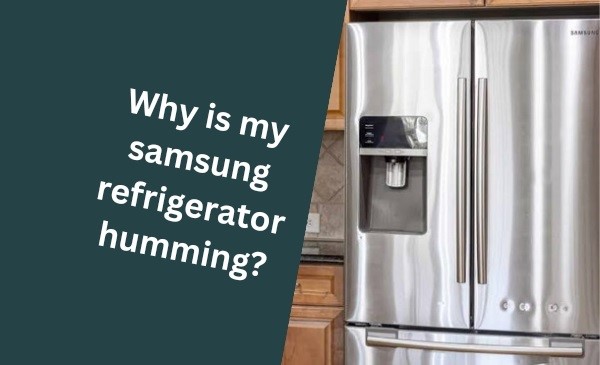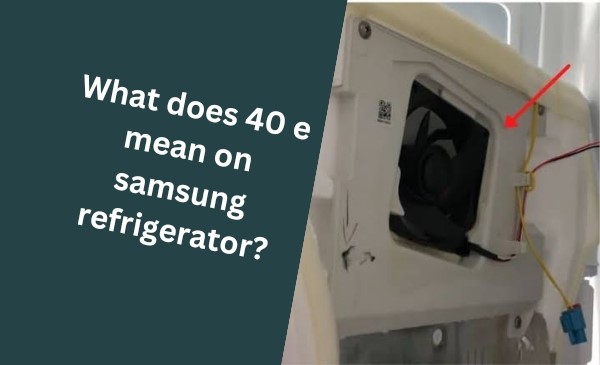The number of amps that a Samsung refrigerator uses varies depending on the model and size of the refrigerator. However, most Samsung refrigerators use between 3 and 6 amps during normal operation. During startup, the refrigerator may use up to 15 amps for a short period of time.
To find the exact amperage of your Samsung refrigerator, you can consult the owner’s manual or look for the amperage rating on the appliance itself. The amperage rating is usually located on the inside left wall of the fridge compartment.
Understanding The Amps: How Does It Impact Power Consumption?
When it comes to understanding the power usage of your Samsung refrigerator, it is essential to know about amps and their impact on power consumption. Amps, short for amperes, are a unit of electrical current. By understanding how amps are measured and their relationship with power consumption, you can gain insights into the energy efficiency of your refrigerator.
What Are Amps And How Are They Measured?
Amps, in simple terms, represent the flow rate of electric current. Measured using an ammeter, amps indicate the number of electrons passing through a conductor in one second. It is important to note that the amperage of an appliance, like a refrigerator, refers to the amount of current it draws from the power source.
When it comes to measuring amps, there are two common methods:
- Using an ammeter: An ammeter can measure the amperage directly by connecting it in series with the refrigerator’s power supply. This method provides an accurate reading of the amps drawn by your refrigerator.
- Using the appliance label: Many appliances, including Samsung refrigerators, have a label that specifies the amperage. This label allows you to determine the amp usage without the need for an ammeter.
The Relationship Between Amps And Power Consumption
Understanding the relationship between amps and power consumption is crucial when evaluating the electricity usage of your Samsung refrigerator. Power consumption, measured in watts, depends on both the voltage and amperage of an appliance. The formula to calculate power consumption is:
Power (in watts) = Voltage (in volts) x Amps (in amperes)
Higher amps usually indicate more significant power consumption. It is important to keep this in mind when considering the energy efficiency of your refrigerator. Refrigerators with lower amperage values tend to consume less power, making them more energy-efficient choices for your home.
Exploring The Impact Of Amps On The Energy Efficiency Of A Refrigerator
Now that we understand the concept of amps and their relationship with power consumption, let’s delve into the impact of amps on the energy efficiency of a refrigerator. Since amps directly affect power consumption, refrigerators with lower amp ratings consume less electricity, resulting in reduced energy costs.
By carefully selecting a Samsung refrigerator with a lower amp rating, you can ensure that your appliance operates efficiently while minimizing its impact on your energy bills. Additionally, energy-efficient refrigerators contribute to a greener environment by conserving power and reducing overall energy consumption.
Awareness about the amp usage of your Samsung refrigerator allows you to make informed decisions regarding energy efficiency and power consumption. Whether you are purchasing a new refrigerator or trying to optimize the energy usage of your existing one, understanding the amps and their impact on power consumption is key.
The Standard Amp Rating For Samsung Refrigerators
When it comes to a Samsung refrigerator, it’s important to understand the standard amp rating in order to ensure proper electrical installation and prevent any potential damage. The amp rating refers to the amount of electrical current that a refrigerator requires to run efficiently.
By knowing the typical amp rating for Samsung refrigerators, factors that can affect the amp rating, and the importance of choosing the correct amperage, you can make an informed decision and maintain the optimal performance of your refrigerator.
The Typical Amp Rating Range For Samsung Refrigerators
Understanding the typical amp rating range for Samsung refrigerators is crucial when installing or troubleshooting electrical connections. While these ratings may vary based on the specific model and additional features, Samsung refrigerators generally fall within a specified range of amp ratings. Below is an overview of the average amp ratings for different types of Samsung refrigerators:
| Refrigerator Type | Amp Rating Range |
|---|---|
| Single-door refrigerator | 1.5 – 2.5 Amps |
| Double-door refrigerator | 2.5 – 3.5 Amps |
| French door refrigerator | 3.5 – 4.5 Amps |
These ranges serve as a guideline, but it’s important to refer to the specific model’s documentation or consult a professional electrician to ensure accurate information for your particular Samsung refrigerator.
Factors That Can Affect The Amp Rating Of A Samsung Refrigerator
Several factors can contribute to variations in the amp rating of a Samsung refrigerator. These factors include:
- Refrigerator size: Larger refrigerators typically require higher amp ratings due to the increased cooling capacity and power consumption.
- Additional features: Features like ice makers, water dispensers, or built-in smart technology can affect the overall amp rating. These added functionalities often require extra electrical power.
- Compressor type: Different compressor types have varying power requirements, which can influence the overall amp rating.
- Ambient temperature: Operating a refrigerator in a high-temperature environment can cause the compressor to work harder, resulting in a higher amp rating.
By considering these factors, you can better understand why certain Samsung refrigerator models may have slightly different amp ratings and make appropriate electrical preparations.
Understanding The Importance Of Choosing The Correct Amperage For Your Refrigerator
Choosing the correct amperage for your Samsung refrigerator is crucial for several reasons:
- Efficient operation: Opting for the correct amp rating ensures that your refrigerator receives the necessary electrical power to operate at its peak efficiency, maintaining ideal temperature levels and preserving food freshness.
- Electrical safety: Incorrect amperage can lead to electrical malfunctions, increased risk of overheating, and potential damage to the refrigerator’s components or electrical system. It is essential to prevent any electrical hazards.
- Energy consumption: Using the proper amp rating helps reduce energy consumption and keeps your energy bills manageable.
Therefore, take the time to determine the specific amp rating required for your Samsung refrigerator to avoid any potential issues and guarantee optimal performance.
Calculating The Amps Used By A Samsung Refrigerator
Understanding the energy usage of your Samsung refrigerator is key to managing your household’s energy consumption and reducing your utility bills. One crucial factor to consider is the amps used by your refrigerator. By calculating the amps, you can get an estimate of the energy consumption and make informed decisions to minimize it.
In this guide, we will explore the key components that contribute to the amp usage of a refrigerator, provide a step-by-step guide to calculating the amps used by your Samsung refrigerator, and offer some tips for reducing amps and minimizing energy consumption.
The Key Components That Contribute To The Amp Usage Of A Refrigerator.
Before getting into the calculation, it’s essential to understand the primary components that contribute to the amp usage of a Samsung refrigerator. These components include:
- The compressor: The compressor is responsible for maintaining the temperature inside the refrigerator by circulating the refrigerant through the coils.
- The condenser fan: This fan helps dissipate heat from the condenser coils, allowing the refrigerant to cool down and liquefy.
- The evaporator fan: The evaporator fan circulates cold air from the evaporator coils to keep the refrigerator and freezer compartments cool.
- The defrost heater: This component prevents ice buildup on the evaporator coils, ensuring efficient operation.
A Step-by-step Guide To Calculating The Amps Used By Your Samsung Refrigerator.
To calculate the amps used by your Samsung refrigerator, follow these simple steps:
- Locate the electrical specification label on your refrigerator. It is usually located on the back, inside the fridge, or on the side of the door.
- Identify the rated voltage (V) and rated current (A) specified on the label.
- Divide the rated power (wattage) by the rated voltage to calculate the amps. You can use the formula: Amps (A) = Watts (W) / Volts (V).
- For example, if the rated power is 300 watts and the rated voltage is 120 volts, the calculation would be: Amps (A) = 300W / 120V = 2.5A.
Tips For Reducing The Amps Used By Your Refrigerator And Minimizing Energy Consumption.
Reducing the amps used by your Samsung refrigerator can help you save energy and reduce your electricity costs. Here are a few tips to consider:
- Keep the refrigerator well-organized to allow proper air circulation and prevent overpacking, which can lead to increased energy consumption.
- Ensure the fridge door seals are tight and free from cracks or gaps to avoid air leakage.
- Set the temperature to the recommended levels for the refrigerator and freezer compartments, typically around 37°F to 40°F for the fridge and 0°F for the freezer.
- Regularly clean the condenser coils to ensure proper heat dissipation and efficient operation.
- Consider upgrading to an Energy Star-certified refrigerator, which is designed to consume less energy without compromising performance.
By understanding and monitoring the amps used by your Samsung refrigerator, you can optimize its energy consumption and contribute to a more sustainable household. Use the step-by-step guide above to calculate the amps, implement the suggested tips, and enjoy energy savings in the long run.
How Amps Impact The Performance Of A Samsung Refrigerator
When it comes to the performance of a Samsung refrigerator, one key factor to consider is its amp usage. Amps, short for amperes, measure the electrical current flowing through a device. In the case of a refrigerator, amps play a crucial role in determining its cooling capability and overall performance.
The Relationship Between Amps And Cooling Capability
Amps directly impact the cooling capability of a Samsung refrigerator. The higher the amp usage, the more power the refrigerator consumes, resulting in better cooling performance. The cooling mechanism, such as the compressor and condenser, relies on a sufficient amount of electricity to operate efficiently.
A Samsung refrigerator typically requires an amp range of 6 to 8 amps to function optimally. This allows the refrigerator to generate and maintain the necessary cold temperatures required for proper food preservation. Amps directly affect the ability of the refrigerator to remove heat from the interior and maintain a consistent cold temperature.
Can High Amp Usage Affect The Performance Of A Samsung Refrigerator?
While it is essential for a Samsung refrigerator to have adequate amp usage for optimal performance, high amp usage can potentially impact its overall performance. Excessive amp usage can lead to various issues that might affect the efficiency and effectiveness of the refrigerator. Some potential drawbacks of high amp usage include:
- Increased energy consumption: High amp usage generally translates to more electricity consumed. This can result in higher energy bills and a less environmentally friendly operation.
- Overheating components: Excessive amps can cause the refrigerator’s components, such as the compressor and condenser, to overheat. This can lead to premature wear and tear or even system failure.
- Inconsistent cooling: If a Samsung refrigerator consistently operates at a high amp usage, it may struggle to maintain a consistent and optimal cooling temperature. This can result in uneven cooling throughout the refrigerator and potential spoilage of perishable food items.
Maintaining The Optimum Amp Usage For Optimal Refrigerator Performance
To ensure the Samsung refrigerator delivers the best performance and longevity, it is crucial to maintain the optimal amp usage. By sticking to the recommended range of 6 to 8 amps, you can keep the refrigerator functioning at its best. Here are some tips to maintain the optimum amp usage:
- Check the power supply: Make sure the electrical outlet providing power to the refrigerator is correctly grounded and can handle the required load.
- Inspect the power cord: Regularly inspect the power cord for any signs of damage or fraying. Replace it if necessary to prevent any electrical issues.
- Clean the condenser coils: Dust and debris on the condenser coils can decrease their efficiency and lead to higher amp usage. Clean the coils regularly to ensure smooth operation.
- Organize the contents: An overcrowded refrigerator can obstruct airflow, forcing the unit to work harder and use more amps. Keep the refrigerator well-organized to allow for proper ventilation.
- Regular maintenance: Follow the manufacturer’s guidelines for regular maintenance, such as cleaning and replacing filters, to help maintain the optimal performance of the refrigerator.
By adhering to these tips and keeping the amp usage within the recommended range, you can ensure your Samsung refrigerator operates efficiently and effectively, providing optimal cooling performance for your food storage needs.
Tips For Managing The Amp Usage Of A Samsung Refrigerator
Managing the amp usage of your Samsung refrigerator is essential to ensure optimal energy efficiency and lower electricity bills. By implementing energy-saving measures, regularly maintaining and cleaning your refrigerator, and following additional tips and tricks, you can effectively manage the amp usage of your Samsung refrigerator without compromising on its performance.
Implementing Energy-saving Measures To Reduce Amp Usage
There are several energy-saving measures you can implement to reduce amp usage in your Samsung refrigerator:
- Set the temperature to the optimal level: Adjust the temperature settings of your refrigerator to the recommended level. This will ensure that the refrigerator does not overwork itself to maintain a colder temperature than necessary.
- Avoid frequent door openings: Every time you open the refrigerator door, the cold air escapes and the refrigerator has to work harder to reestablish the optimal temperature. Minimize the number of door openings by planning your meals in advance and retrieving all the items you need at once.
- Keep the refrigerator away from heat sources: Placing your refrigerator near heat sources like ovens or direct sunlight can make it work harder to maintain the required temperature. Ensure that your refrigerator is placed in a cool and well-ventilated area.
- Check the door seals: Over time, the door seals of your refrigerator can wear out, leading to air leakage and higher amp usage. Regularly inspect the door seals for any signs of wear and replace them if necessary.
The Role Of Regular Maintenance And Cleaning In Optimizing Amp Usage
Regular maintenance and cleaning of your Samsung refrigerator play a crucial role in optimizing its amp usage:
- Keep the condenser coils clean: The condenser coils of your refrigerator collect dust and debris, which can obstruct airflow and increase amp usage. Clean the coils regularly using a vacuum cleaner or a brush to maintain optimal performance.
- Defrost when necessary: When ice builds up in the freezer compartment, it can cause your refrigerator to consume more energy. Regularly check for ice buildup and defrost the freezer when necessary.
- Clear blocked vents: Blocked vents can restrict the airflow in your refrigerator, causing it to work harder and consume more amps. Periodically check the vents and clear any obstructions to ensure proper airflow.
Additional Tips And Tricks For Efficient Amp Management In Samsung Refrigerators
Here are some additional tips and tricks to efficiently manage the amp usage of your Samsung refrigerator:
- Avoid overloading the refrigerator: Overloading the refrigerator with too many items can hinder proper airflow and increase amp usage. Organize your refrigerator by removing unnecessary items and avoiding overcrowding.
- Consider using a power-saving mode: Some Samsung refrigerators come equipped with a power-saving mode that reduces energy consumption. Enable this mode to optimize amp usage.
- Check for software updates: Periodically check for software updates for your Samsung refrigerator. These updates often include energy-saving features and improvements that can help reduce amp usage.
- Keep the refrigerator well-stocked: A well-stocked refrigerator helps to maintain a stable temperature more efficiently. However, avoid unnecessary items that may take up space and obstruct airflow.
All these tips and tricks, along with regular maintenance, will help you effectively manage the amp usage of your Samsung refrigerator, ensuring energy efficiency and cost savings in the long run.
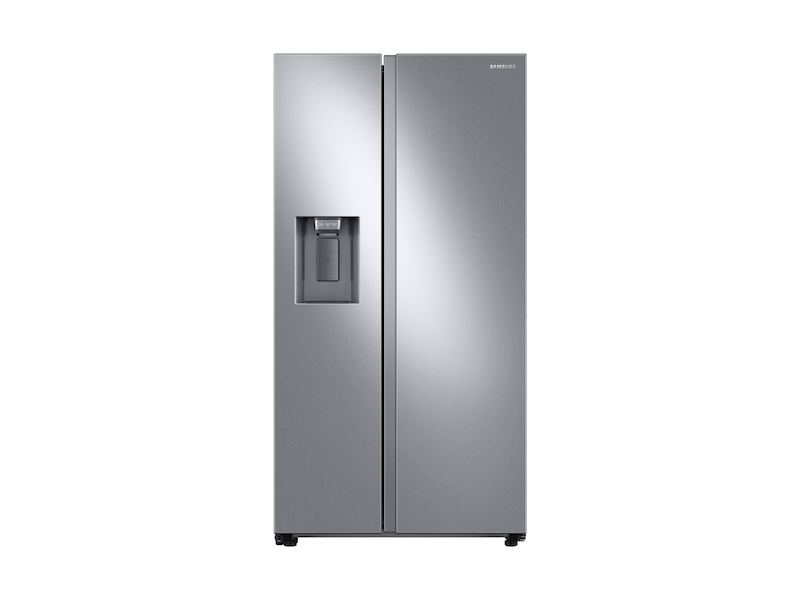
Credit: www.samsung.com
Conclusion
Understanding the electrical requirements of a Samsung refrigerator is essential for optimum performance and safety. By knowing the average amperage usage, users can ensure they have the appropriate electrical setup. Remember to consult the appliance’s manual or contact the manufacturer for precise information regarding your specific model.
Maintaining proper electrical connections will not only extend the lifespan of the refrigerator but also provide efficient cooling and help save energy costs.
Hello Readers, I am Mechanic Shuvo, a seasoned refrigerator solution expert with over 11 years of hands-on experience in the field. Throughout my career, I've dedicated myself to understanding the ins and outs of refrigeration systems, honing my skills as a refrigerator mechanic. My passion for these appliances led me to create the website "refrigeratorsolutionsguide.com," where I aim to share my wealth of knowledge and expertise with others.
Over the years, I've encountered a wide range of refrigerator issues and have successfully resolved them all. From common problems like temperature fluctuations and strange noises to more complex technical issues, I've seen it all. Through my website, I hope to provide practical solutions, insightful tips, and guidance to help you keep your refrigerators running smoothly.


